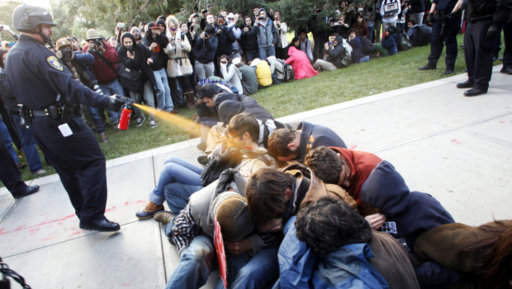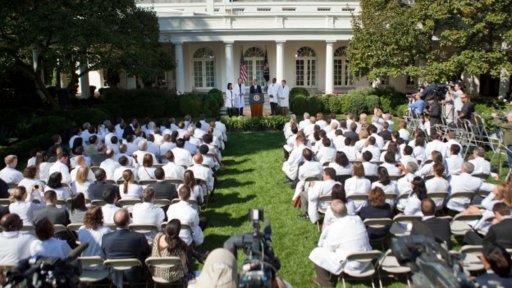That is, to a limited degree, the argument I'm making, yes. There are situations such as extreme rioting where extreme force, perhaps even deadly force is needed. When used, that use of force should endure the most thorough scrutiny to ensure it was absolutely necessary. There's no excuse for the use for extreme force on a non-violent protest action. None whatsoever. And yet extreme force (batons, tear-gass, pepper-spray, ect.) are often employed on people engaged in peaceful protest.

When it is, those peaceful protests are made all the more powerful, especially when the force used is peacefully endured. The above protest action is one we'd likely have never heard about had some prick of a Police officer not sprayed them down like weeds. What might have been a more or less ineffectual effort abruptly became an incredibly potent symbol for police-oppression that everyone can understand and no-one can deny, which has gone on to receive global attention. Some crowds don't deserve to be dispersed. It's essential to the health of the nation that some crowds aren't dispersed. If a crowd of common citizens is willing to risk tear-gas, mace, beatings and sound-cannons to remain firm in their peaceful action, and deadly force becomes the only option for authorities to disperse them, then authorities should withdraw and concessions of Government should be made. So long as there's that point where the authorities have to choose between backing down and killing someone, and so long as it remains unacceptable for someone to be killed by the authorities while participating in a peaceful protest, peaceful protest will remain an effective, if not overly powerful tool in combating Government and bringing change.
This machine, described by the LA Warden as 'the Holy Grail of crowd-control', can make peaceful protest rapidly and truly unbearable. If trained Marines can't endure this thing for more than a few seconds, a crowd of civilians, no matter how determined, doesn't stand much of a chance. It has the potential to make peaceful civil unrest in defiance of authority an impossibility, and could give the authorities the ability to switch protest-actions off at their leisure.


